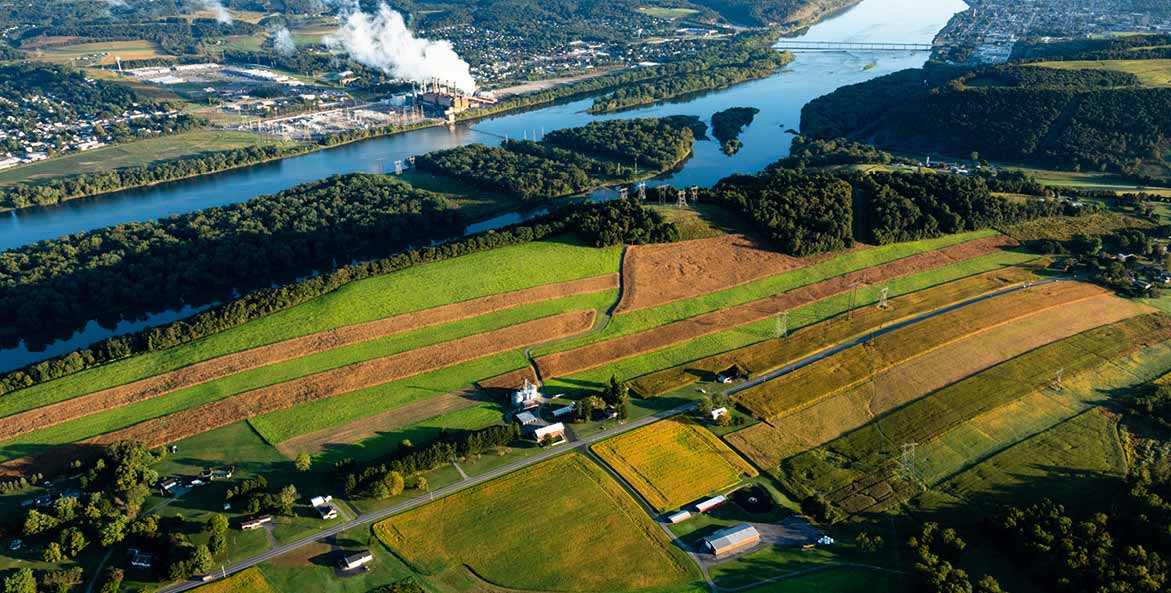The following was first published on the PA Environment Digest blog.
New funding at historic levels in Pennsylvania's budget for fiscal year 2022-23 will give more farmers the resources to put agricultural projects on the ground that will keep precious topsoil and nutrients on the land instead of in the water and reduce polluted runoff entering local rivers and streams and the Chesapeake Bay.
The Chesapeake Bay Foundation (CBF) is cheering the long-awaited boost to water quality in Pennsylvania's rivers and streams that comes with this breakthrough budget.
Not since the days of the Ridge Administration and the first Growing Greener in 1999, has Pennsylvania's Governor and General Assembly made such monumental investments to restore and protect the waters that flow from farms, fields, and forests into our local waters, and ultimately the Chesapeake Bay.
Included in the budget for the first time is a new Clean Streams Fund that includes a $220 million comprehensive funding package to address the top sources of stream pollution in the state.
About $154 million of the fund is dedicated toward a new cost-share Agricultural Conservation Assistance Program (ACAP).
More than 90 percent of the Commonwealth's remaining pollution reductions must come from agriculture. ACAP will provide county conservation districts additional resources to help farmers design and help pay the costs of implementing conservation practices.
With the increased opportunity for cost-share dollars, Shippensburg beef farmer Greg Strayer may be able to replace or repair a 1990's-era manure stacking pad that is leaking liquid runoff from the manure, killing a grass buffer, and threatening a small tributary of the Conodoguinet Creek.
"Frankly, I can't place conservation above paying my mortgage and paying the bank my loan fees," Strayer says. "Otherwise, they are going to take the farm. I have to feed my family."
Carlisle beef and poultry farmer Neal Darhower canceled a 2019 contract with the Natural Resources Conservation Service because with spiking construction costs he couldn't afford the three roofed heavy-use areas he wanted.
"As soon as COVID hit and shut down sawmills and concrete plants, prices went up. What was originally a $274,000 project for three beef buildings for manure storages and heavy use areas, turned into a $390,000 project," Darhower says.
He hopes to apply again for the barns that would reduce runoff, save expenses of feeding his cattle and protect Opossum Creek as it flows into Opossum Lake.
In addition to supporting agriculture, the Clean Streams Fund will also invest in reducing the impacts of polluted runoff from urban areas, cleaning up acid mine drainage, restoring abandoned mine land across the state, and helping plant more trees along streams and streets.
CBF is also pleased that $100 million will be going to the State Parks and Outdoor Recreation Program, formerly known as Growing Greener, for infrastructure, conservation, and recreation projects.
CBF is also delighted that new funding will be going to the Keystone Tree Restricted Account so that more trees can be planted to help clean up our local waters.
Special appreciation goes to State Senator Gene Yaw (R-Lycoming) and State Representative Johnathan Hershey (R-Juniata) for championing bipartisan legislation to create the Clean Streams Fund and ACAP.
CBF also congratulates the Pennsylvania Farm Bureau for its leadership. We are also proud to have joined the Penn State College of Agricultural Sciences in creating ACAP.
There is gratitude too for everyday Pennsylvanians who spoke up for local clean water and helped get these measures across the finish line.
The Commonwealth has a lot of work to do if it is to achieve its Clean Water Blueprint.
Now, the work on the ground can be accelerated.
It is time to put the increased technical and financial resources from the Clean Streams Fund and ACAP to best use.
CBF will continue its decades-long commitment of working with farmers to produce healthier soil with cover crops and no-till farming, improve manure management, plant trees, and more.
We look forward to working with legislators so that this monumental level of commitment to conservation is sustained beyond this one budget and so the Commonwealth can get back on track toward meeting its clean water commitments.
From the Capitol to croplands, making good on these landmark investments is vital to our health, economic well-being, and quality of life.
For more on Chesapeake Bay-related issues in Pennsylvania, visit CBF's Pennsylvania webpage and sign up for Pennsylvania updates (bottom of left column).
Also visit the Keystone 10 Million Trees Partnership to learn how you can help clean water grow on trees.
How Clean Is Your Stream? Check the Pennsylvania Department of Environmental Protection (DEP) 2022 Water Quality Report to find out how clean streams are near you. Visit DEP's Chesapeake Bay Watershed webpage to learn more about cleaning up rivers and streams in Pennsylvania's portion of the Chesapeake Bay Watershed.
— Bill Chain, Interim Pennsylvania Director and Senior Agriculture Program Manager, CBF
Issues in this Post
Agriculture Chesapeake Clean Water Blueprint Runoff Pollution Trees Water Quality



